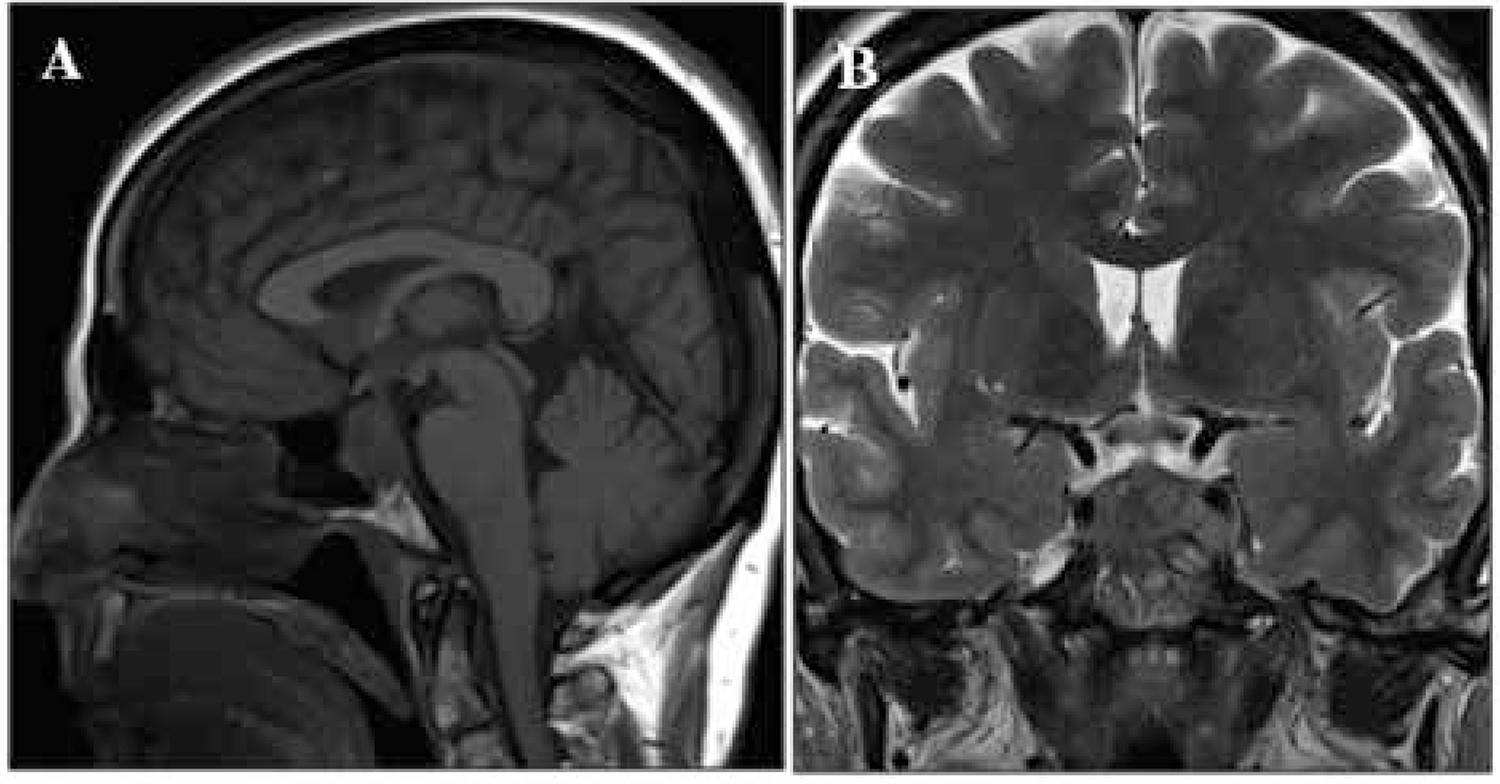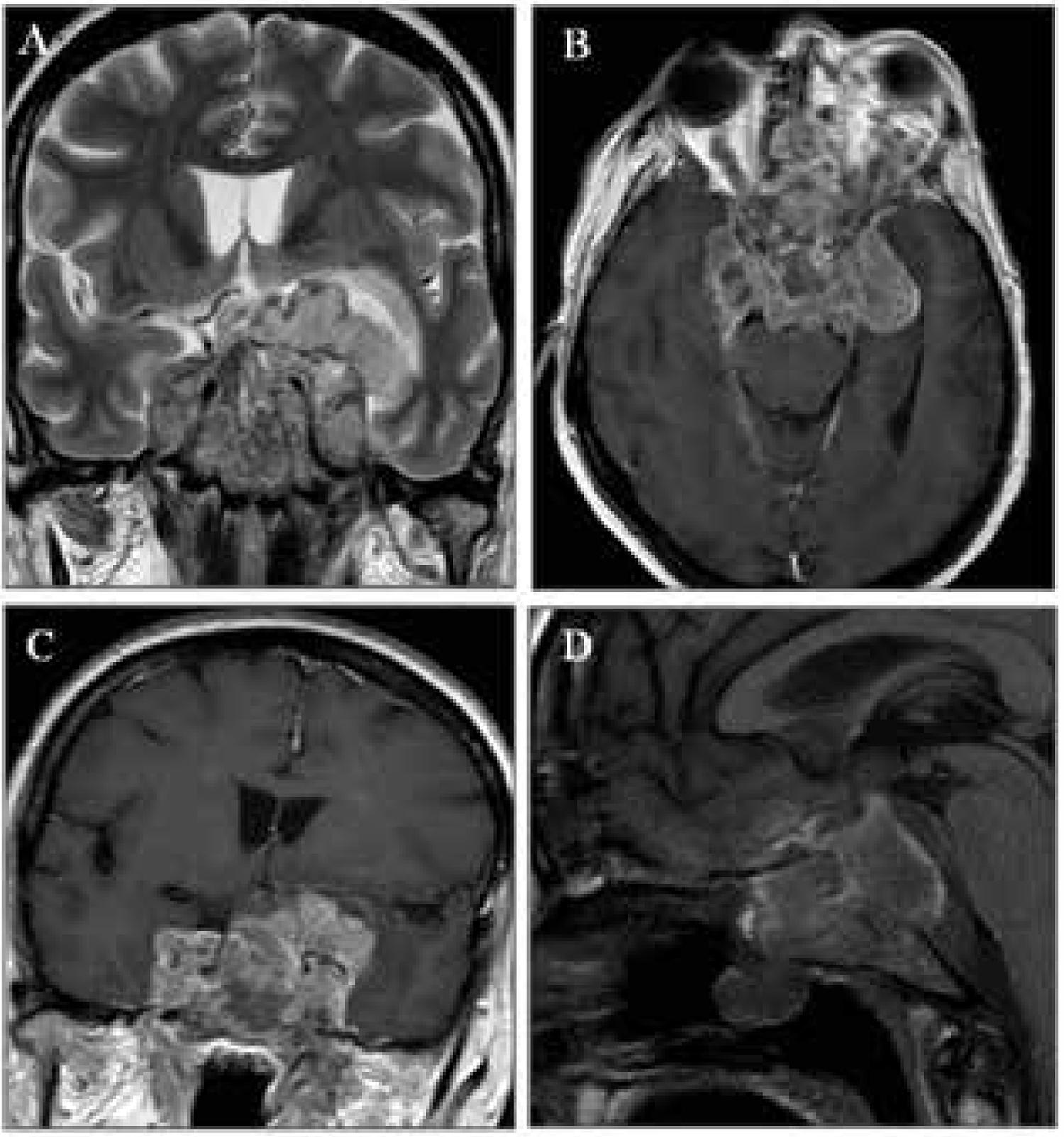The uncommon aggressive pituitary tumors are named carcinomas when metastases are detected, either in the central nervous system and/or systemically. Some cases are associated with hormonal overproduction, but most are diagnosed because of local symptoms. These neoplasias are generally refractory to current treatments. A 51 year-old woman presented sudden onset of headache, left arm paresis and left facial hypoesthesia. Computed tomography scan and magnetic resonance imaging revealed a pituitary tumor invading the left sphenoidal and cavernous sinuses. Laboratory data excluded hormonal hypersecretion. The patient underwent transsphenoidal surgery and histological findings showed a neoplasia with Ki-67 estimated at 75%. Medical imaging excluded both a primary occult tumor and central nervous system or systemic dissemination. Three weeks postoperatively, neurological condition worsened, with new onset of ataxia, bilateral ptosis, ophthalmoplegia and an increase in the size of the lesion, leading to surgical intervention by craniotomy, followed by only a few sessions of radiotherapy, because of severe disease progression. Patient died nearly 2 months after the initial manifestations. This case illustrates the aggressiveness of some pituitary lesions, the limited efficacy of current treatment modalities such as surgery or radiotherapy and the pitfalls of the current pituitary tumors classification. To our knowledge, this case corresponds to one of the most aggressive pituitary neoplasms reported so far, with a very high Ki-67 index (75%) and short survival (2 months). Ki-67 index could be of prognostic value in pituitary tumors. Pituitary tumors World Health Organization (WHO) classification could be revisited.




